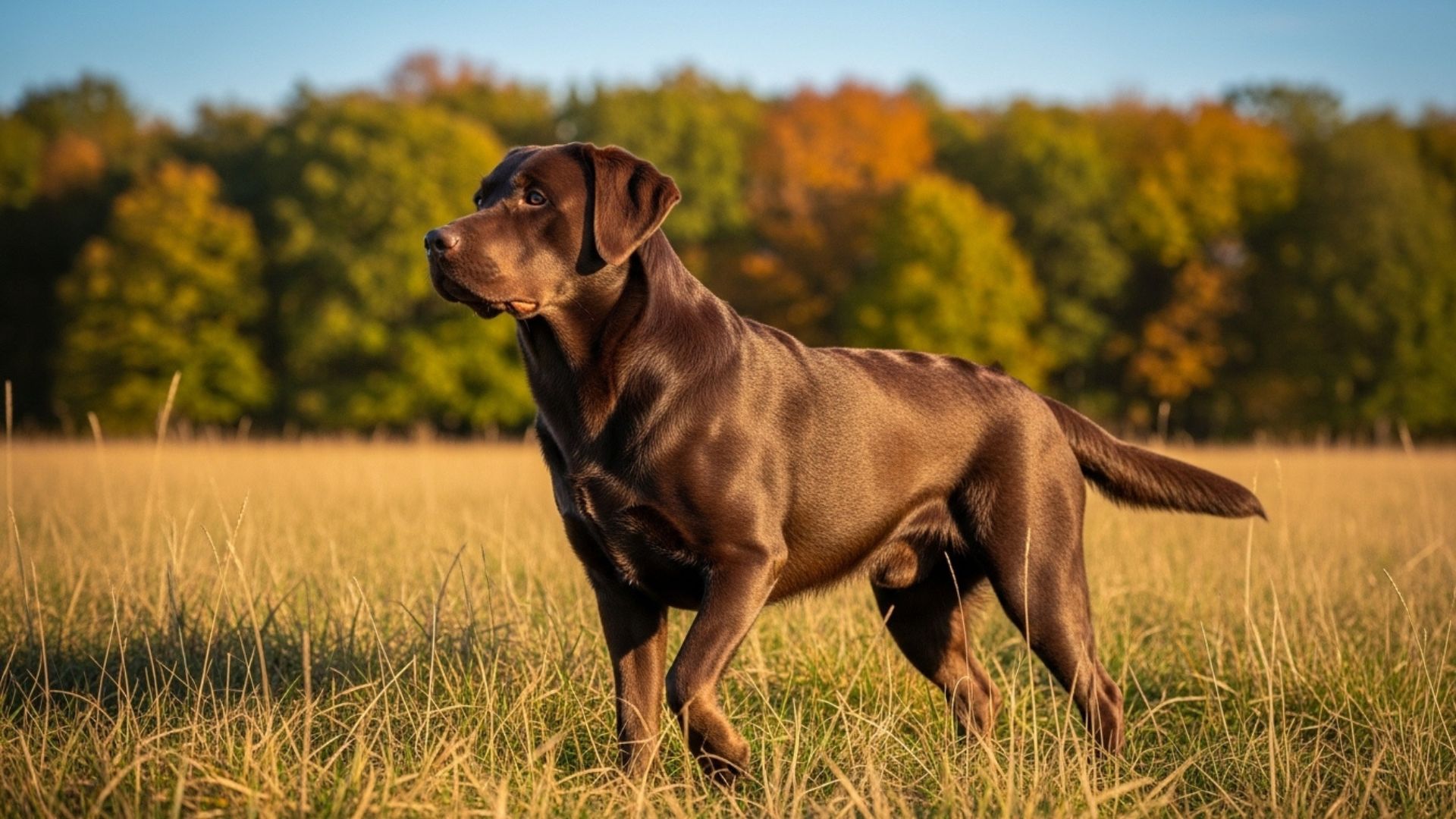What makes a great hunting dog for beginners? It’s not just skill or instinct, it’s temperament, trainability, and the ability to build a strong partnership with their owner. The best hunting breeds combine natural tracking ability with a calm, eager-to-please attitude that makes training both fun and rewarding.
For new hunters, choosing the right dog can mean the difference between a smooth learning experience and a frustrating challenge. These dogs aren’t just talented in the field; they’re loyal companions who adapt easily to family life, too.
From retrievers that love the water to pointers that thrive on precision, beginner-friendly hunting breeds are dependable, intelligent, and full of enthusiasm.
In this guide, we’ll explore seven popular hunting dog breeds that balance athletic ability with easygoing temperaments—perfect for those taking their first steps into the world of hunting dogs.
Popular Hunting Dog Breeds Perfect for Beginners
1. Labrador Retriever
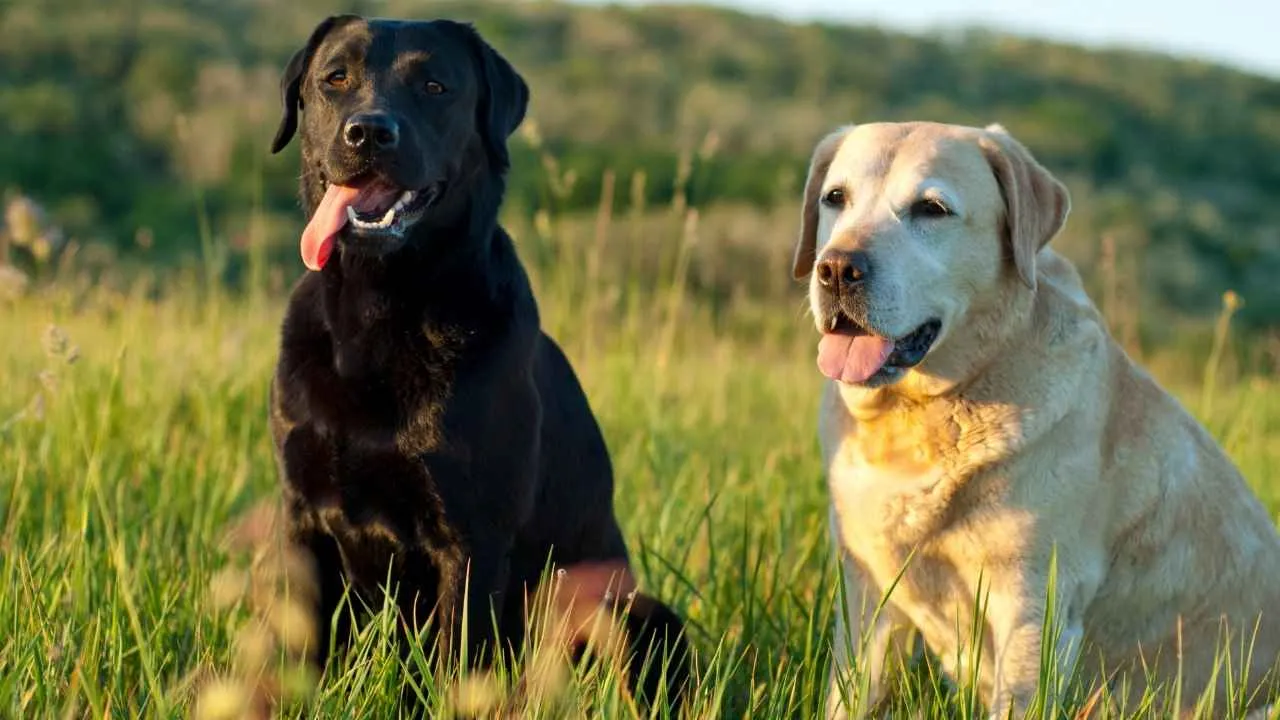
The Labrador Retriever is one of the most dependable hunting dog breeds and a top choice for beginners. Originally bred to retrieve waterfowl, Labs are known for their steady temperament, intelligence, and willingness to work. Their athletic build and water-resistant double coat make them adaptable to a wide range of environments.
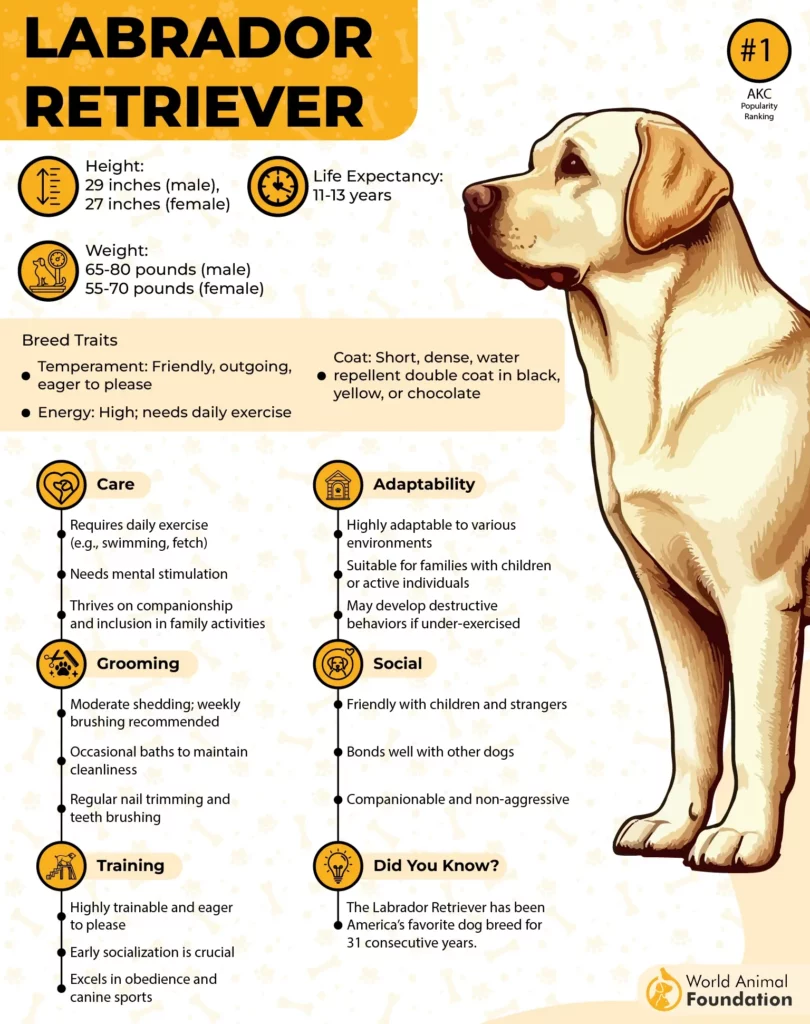
According to the AKC, Labs excel at retrieving both on land and in water, using their strong nose and soft mouth to handle game without damage. They respond well to consistent training and positive reinforcement, which makes them easy to handle for new hunters. However, they require daily exercise to stay healthy and focused.
Their sociable personality means they get along well with people, children, and other dogs. They are not overly aggressive or timid, but without enough stimulation, they can become restless or destructive. Regular activity keeps them balanced and content.
A Labrador’s eagerness to please makes it an ideal hunting partner for those learning the ropes. They are forgiving of beginner mistakes and quickly learn to read their owner’s cues during hunts.
This breed’s combination of athleticism, patience, and intelligence has kept it one of the most popular retrievers worldwide, both in the field and at home.
Fun Fact
Labradors were originally fishermen’s helpers in Newfoundland, hauling nets and retrieving escaped fish before becoming renowned hunting companions.
2. Golden Retriever
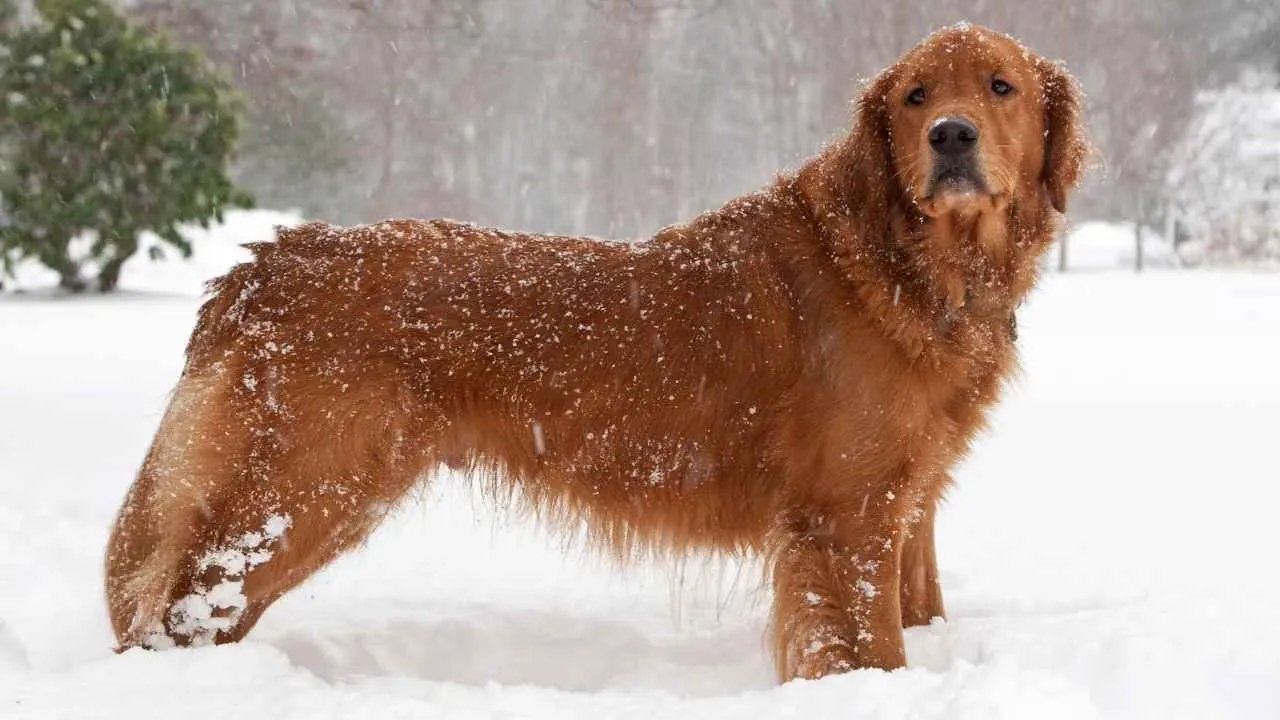
The Golden Retriever is a popular choice for first-time hunters because of its patience, intelligence, and adaptability. Known for its keen retrieving instincts, this breed works exceptionally well in upland and waterfowl hunting. Its dense, water-repellent coat allows it to perform in wet or cold conditions without losing focus.
PetMD states that Golden Retrievers are eager learners who thrive on positive reinforcement. They’re responsive to commands and naturally inclined to stay close to their handler in the field. However, their enthusiasm requires a consistent structure to prevent overexcitement during hunts.

Beyond hunting, they’re affectionate and family-oriented, often forming strong emotional bonds with their owners. Their even temperament makes them as comfortable lounging at home as they are in the field.
Grooming their long coat takes time, but is manageable with weekly brushing. Their friendly nature and intelligence make them suitable for beginners who want a reliable, trainable hunting partner.
With patience, proper exercise, and regular training, the Golden Retriever can develop into a calm, precise, and trustworthy hunting companion.
Fun Fact
Golden Retrievers were first developed in Scotland to retrieve game over land and water, making them one of the most versatile hunting dogs ever bred.
3. Beagle
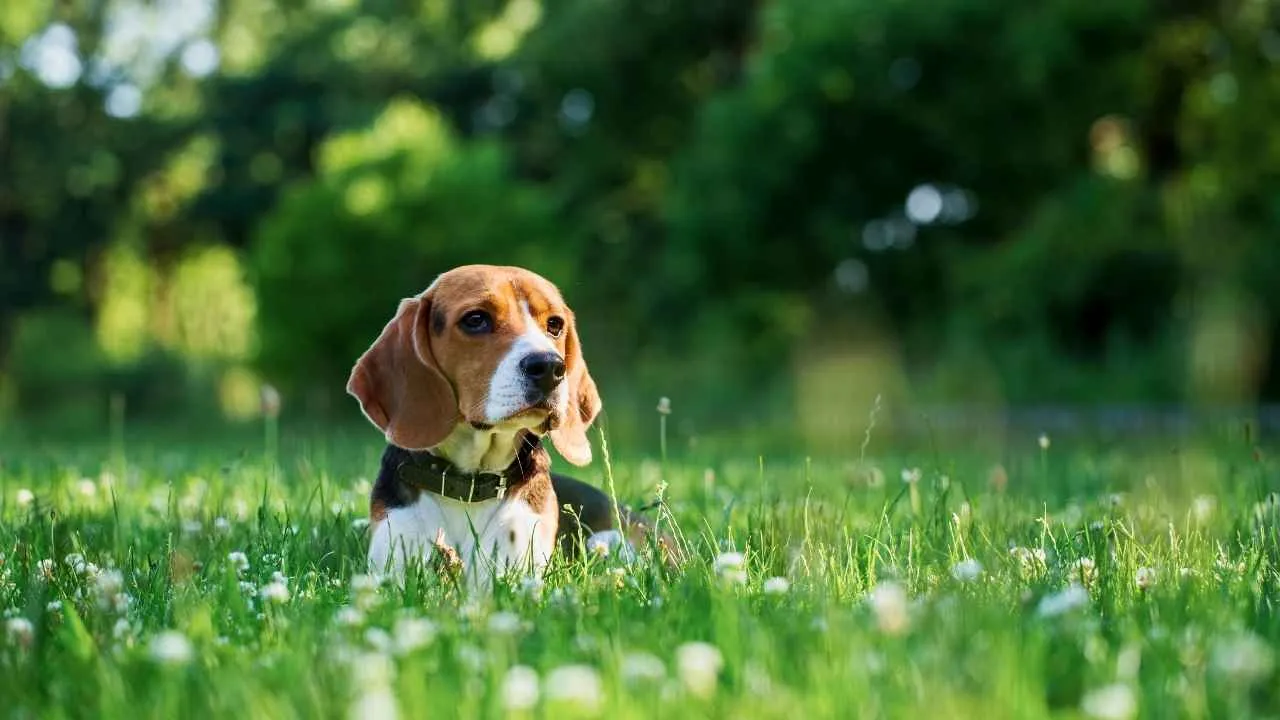
The Beagle is a compact and determined scent hound with a remarkable sense of smell. Originally bred for tracking small game such as rabbits and hares, this breed remains a popular hunting choice due to its size, stamina, and enthusiasm for the chase.
Beagles are independent thinkers, which can make training more demanding for first-time owners. However, with consistent guidance and patience, they become reliable and efficient field dogs. Their strong prey drive and tireless energy keep them engaged during long hunts.
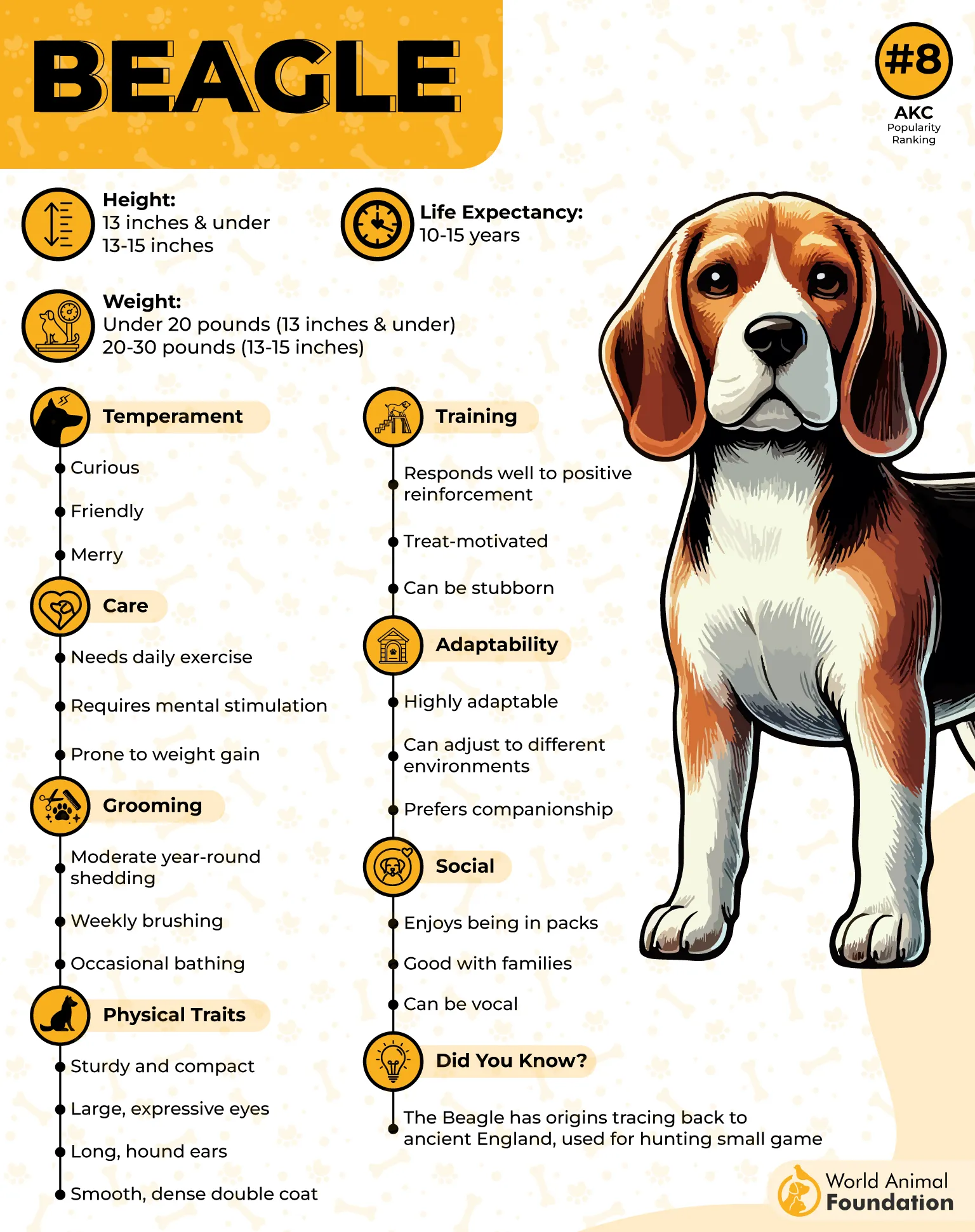
According to Hill’s Pet, their manageable size makes them easy to transport and care for, but they require daily exercise to prevent boredom-related behaviors like barking or digging. Socialization and recall training are particularly important for Beagles due to their strong scent instincts.
They perform best in packs or with other dogs, as they were originally bred to hunt in groups. For beginners willing to invest time in structured training, they’re a dependable, long-term hunting partner.
Beagles are cheerful, affectionate companions at home, balancing their field drive with a gentle, friendly personality.
Fun Fact
A Beagle’s nose has about 220 million scent receptors—making it one of the best sniffers in the canine world, even used for airport detection work.
4. Cocker Spaniel
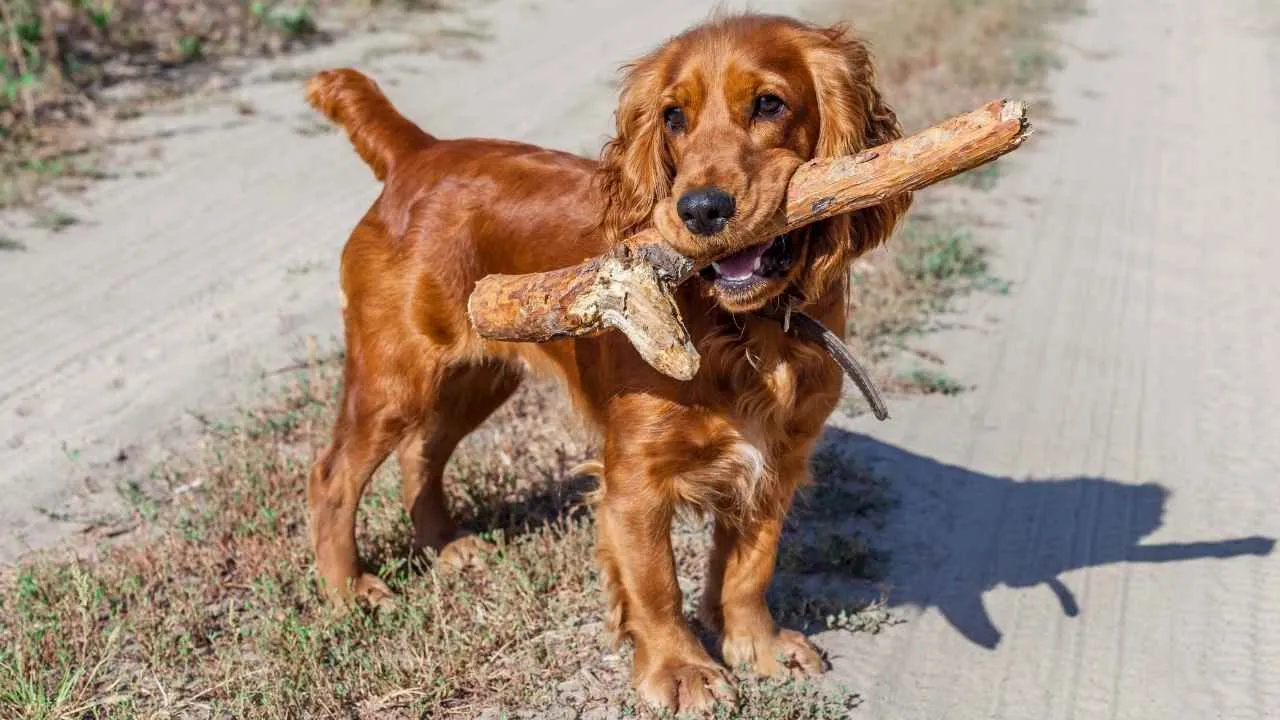
The Cocker Spaniel is a skilled flushing dog known for its sharp nose and enthusiastic work style. Originally bred to hunt woodcock, this medium-sized breed thrives in dense cover, making it ideal for upland bird hunting. Its compact frame and agility help it navigate rough terrain efficiently.
Cockers have a cheerful, eager personality but require clear direction during hunts to stay focused. They respond best to consistent, gentle training that rewards cooperation. Their sensitive nature means harsh methods can discourage progress.
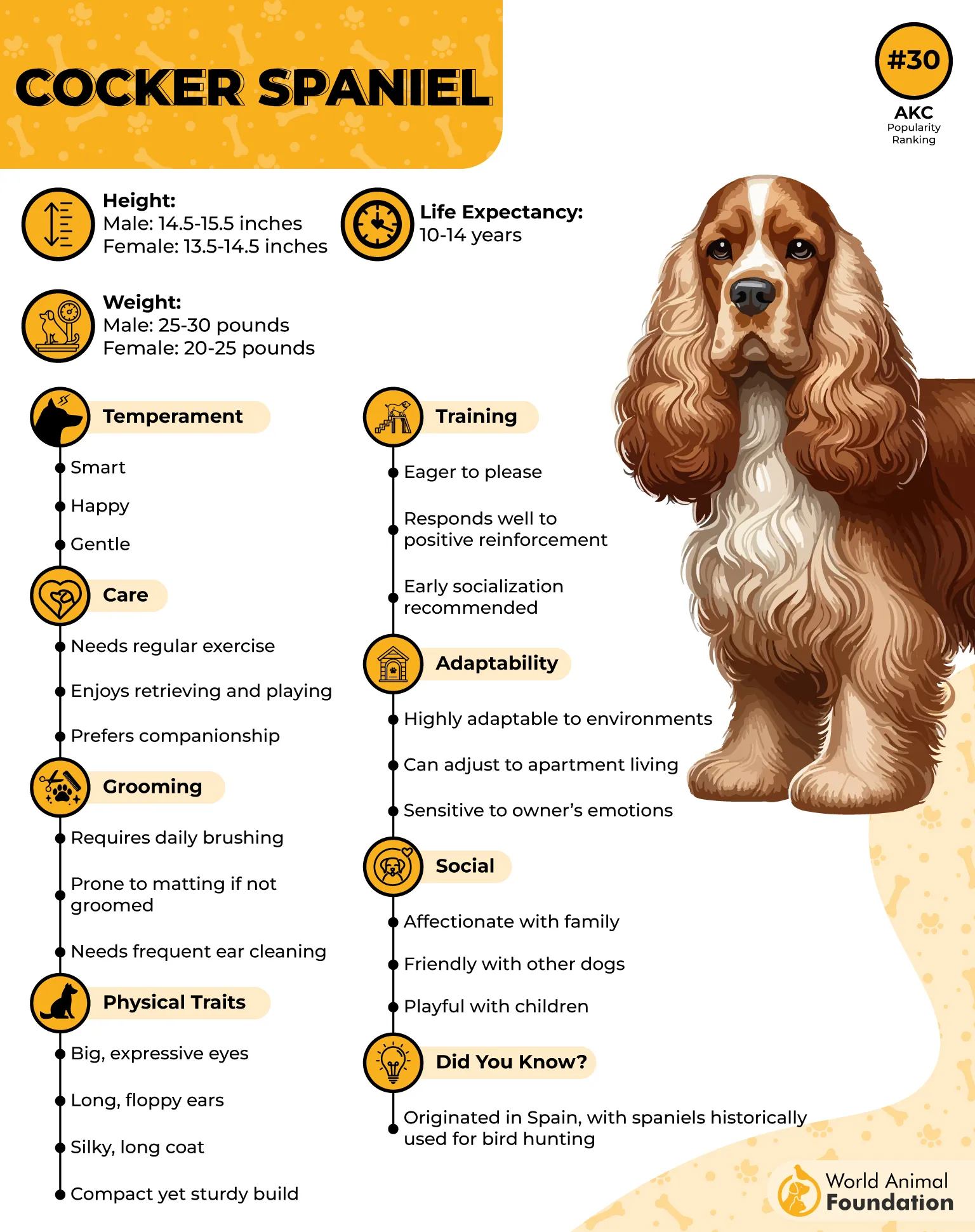
Their coat is soft and beautiful, but requires regular grooming to prevent tangles and debris buildup. Despite their grooming needs, they’re adaptable and can live comfortably in smaller homes when given enough activity.
For beginners, Cocker Spaniels offer a good balance of enthusiasm and manageability. They’re quick learners and show great enthusiasm for retrieving and flushing birds.
With structured practice and steady reinforcement, this breed can become a steady, affectionate hunting partner and a pleasant family pet.
Fun Fact
Cocker Spaniels were named after their skill in hunting woodcock, a type of bird found in dense woodland areas. Their keen sense of smell and persistence remain unmatched in similar terrain.
5. German Shorthaired Pointer
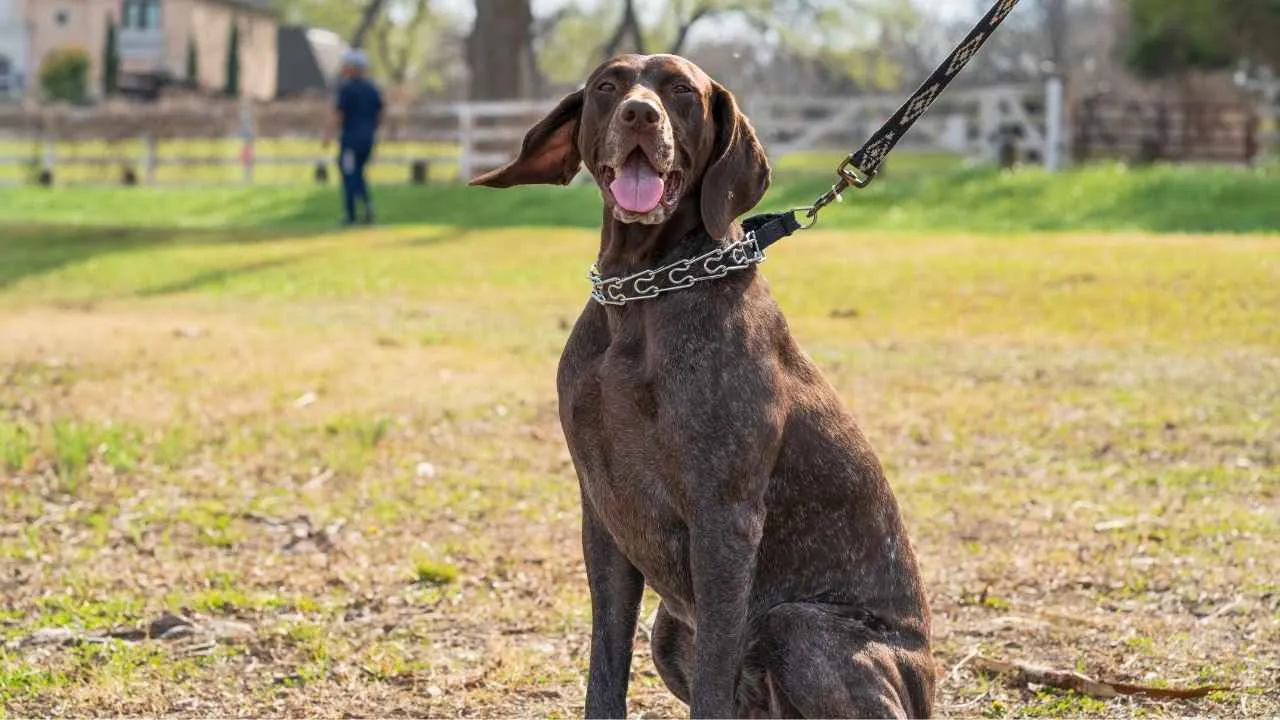
The German Shorthaired Pointer is an energetic, all-purpose hunting breed known for its athleticism and keen sense of smell. Originally bred in Germany for both upland and waterfowl hunting, it’s prized for its intelligence and adaptability. Its sleek, short coat and muscular frame make it built for endurance and precision in the field.
This breed thrives with active owners who can provide daily physical and mental challenges. Without consistent training and enough exercise, a GSP can become restless or overly excitable. Their strong prey drive means recall training is essential, especially when hunting alongside other dogs.
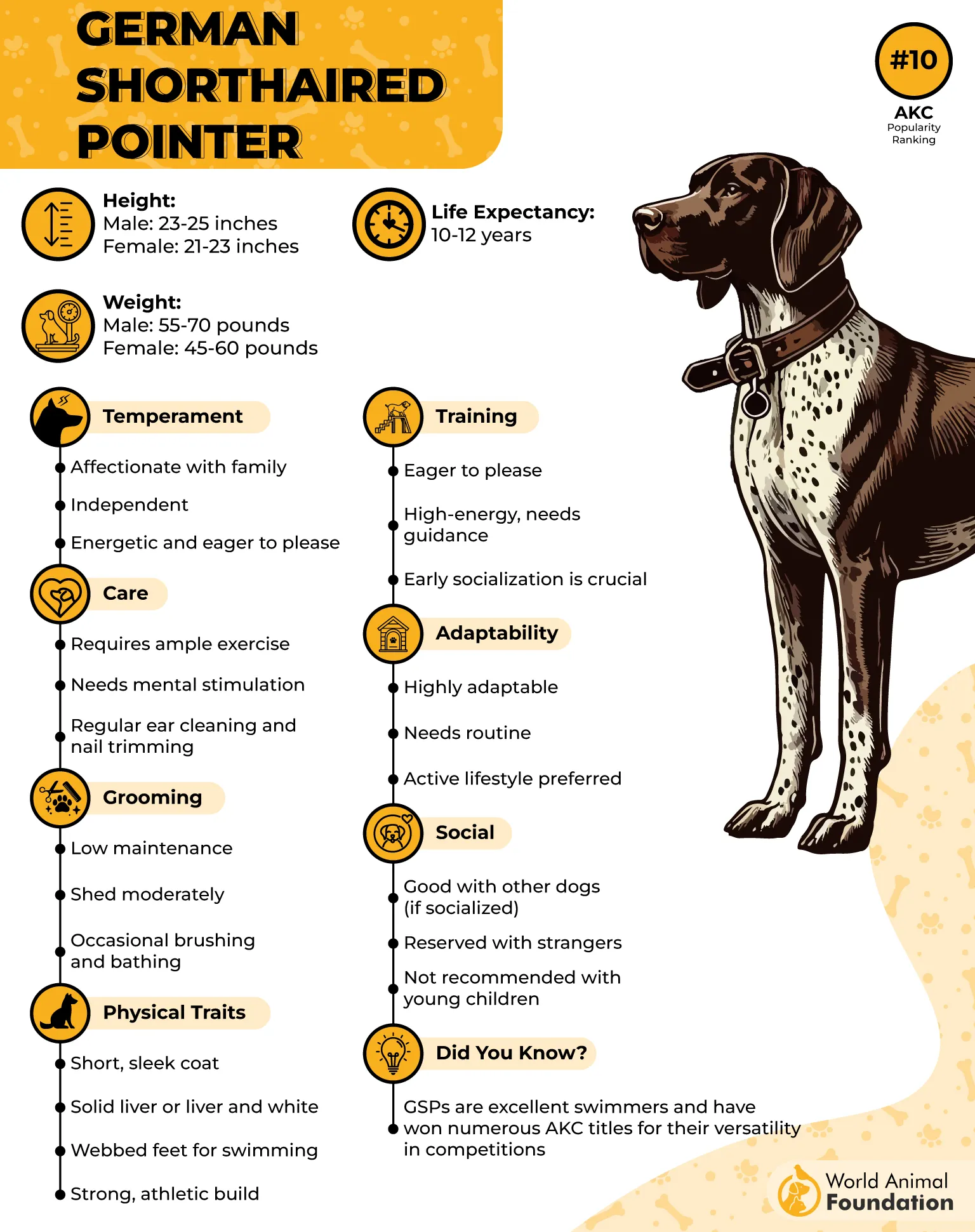
German Shorthaired Pointers are loyal and eager to work but require clear guidance. They do best with owners who can balance discipline and patience, as their enthusiasm can sometimes lead to impulsive behavior.
Their low-maintenance coat sheds moderately, but regular brushing helps control it. GSPs are generally healthy but can be prone to hip dysplasia and bloat, so responsible breeding and proper care are key.
As family companions, they’re affectionate and alert, though their high energy suits homes with space to run and plenty of daily activity.
Fun Fact
The German Shorthaired Pointer’s webbed feet make it a natural swimmer, allowing it to retrieve game efficiently both on land and in water.
6. German Wirehaired Pointer
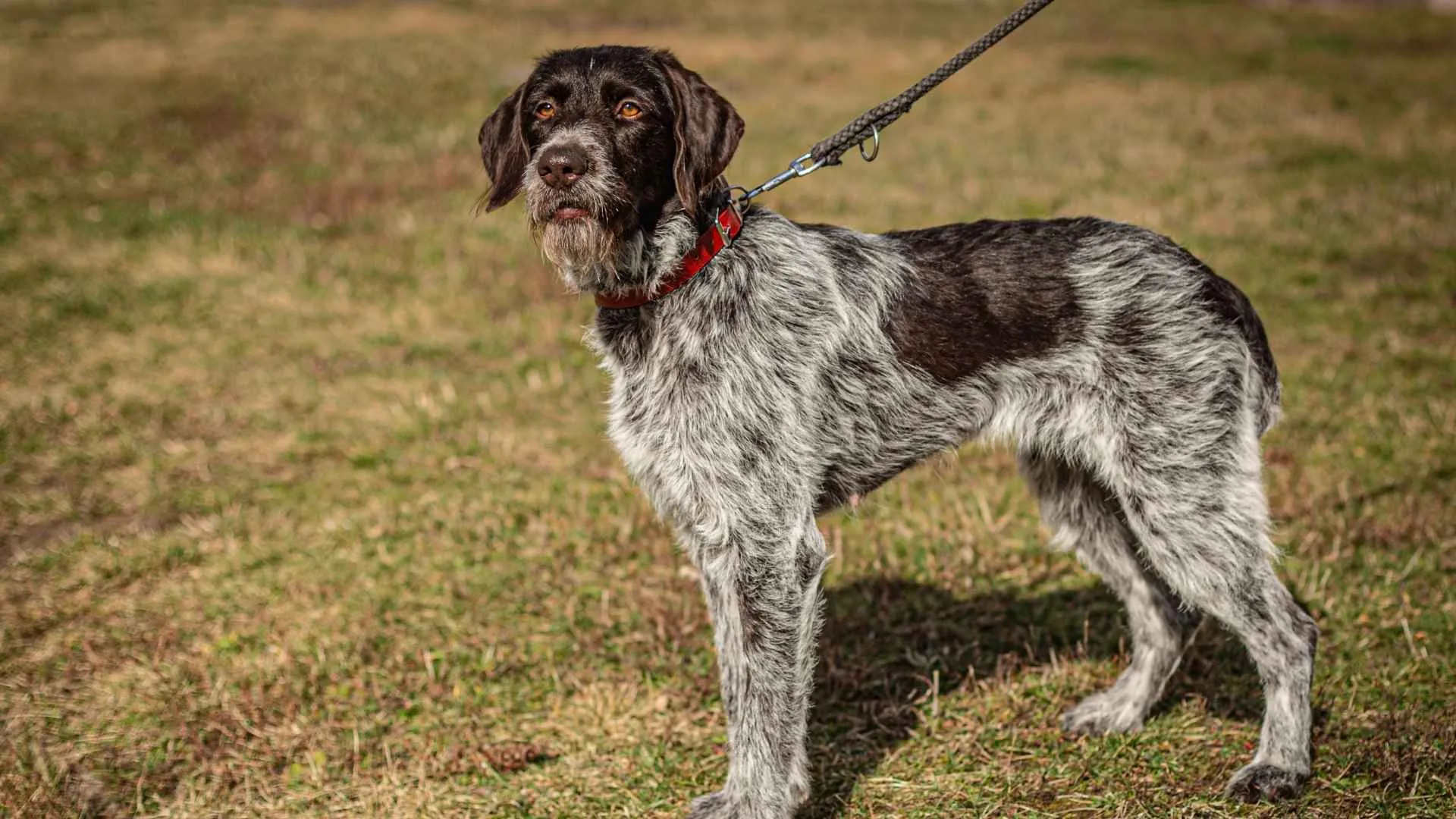
The German Wirehaired Pointer is a rugged, hardworking hunting dog developed for versatility and endurance. Its coarse, water-resistant coat and thick beard protect it from harsh terrain and weather. This breed is especially valued for its determination in tracking and retrieving both upland birds and waterfowl.
It’s an intelligent and independent thinker, which means training should start early and stay consistent. While it bonds closely with its owner, it can be wary of strangers and small animals without proper socialization. Regular exercise and structured activities are essential to prevent boredom-related behaviors.
The wiry coat is relatively low-shedding but benefits from weekly brushing to keep it healthy. It’s designed to shield the dog from briars, brush, and cold water during hunts, making grooming simple but important.
German Wirehaired Pointers are loyal and protective but not overly aggressive. Their natural guarding tendencies make them dependable without being reactive.
Best suited for experienced hunters or active owners, this breed excels in both companionship and sport when given firm yet fair leadership.
Fun Fact
The German Wirehaired Pointer’s distinctive beard and eyebrows aren’t just for looks—they evolved to protect its face from thorny undergrowth while pursuing game.
7. Boykin Spaniel
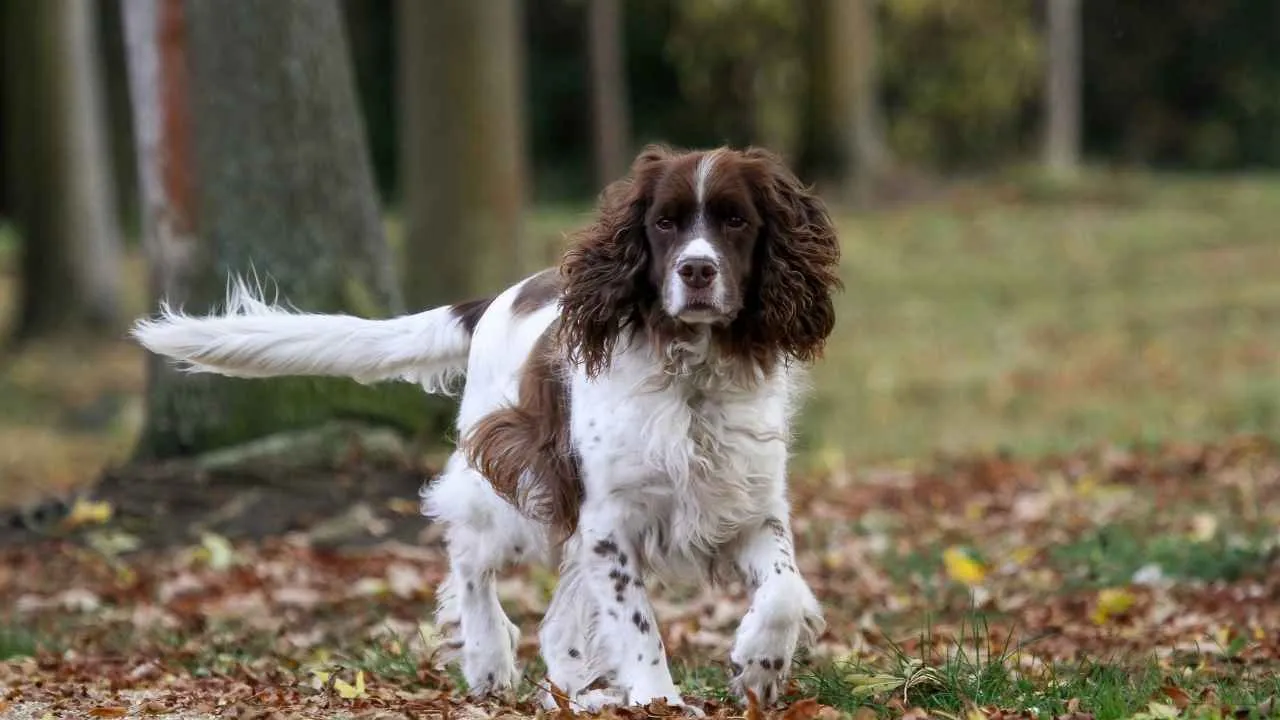
The Boykin Spaniel is a compact, energetic breed originally developed in South Carolina for hunting ducks and wild turkeys. Small enough to fit in a boat yet strong enough for fieldwork, it’s a favorite among hunters in marshy and wooded areas. Its medium-length, wavy coat is designed to handle both water and land.
Friendly and highly trainable, Boykins respond best to positive reinforcement and steady guidance. They have a strong retrieving instinct and love being part of the action. However, without enough exercise or stimulation, they can become anxious or overly excitable.
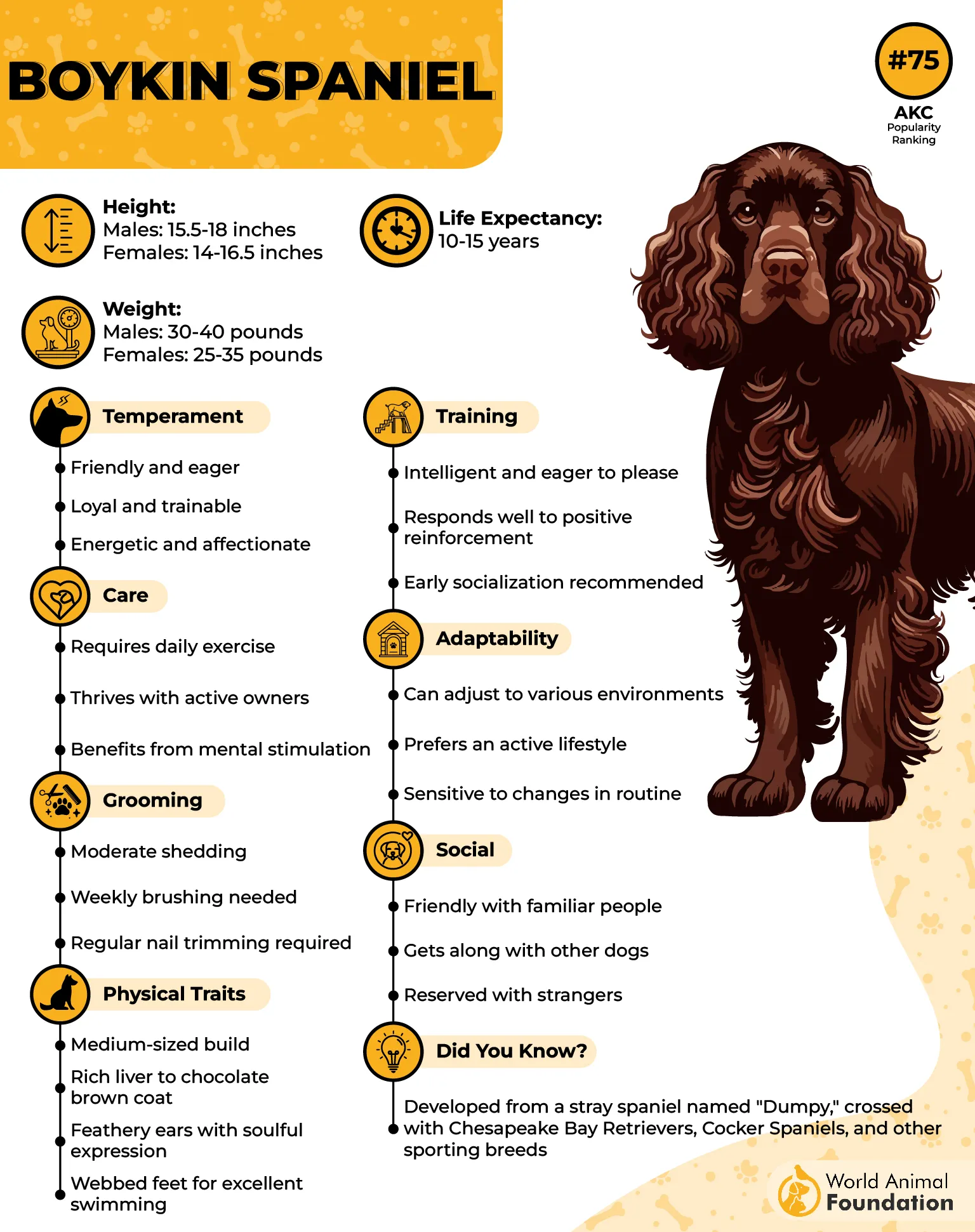
This breed forms deep bonds with its family and prefers companionship to solitude. Its affectionate personality makes it a good fit for families who enjoy outdoor activities. Early socialization helps maintain its calm and cooperative nature.
Boykin Spaniels are generally easy to groom, needing regular brushing to remove debris from their coat. Their energy level means they need consistent daily activity rather than long periods of rest.
Versatile and adaptable, the Boykin can transition from hunting companion to family pet with ease, provided it receives structure, attention, and purpose.
Fun Fact
The Boykin Spaniel originated from a stray brown spaniel named “Dumpy,” who became the foundation of the breed and later earned the title of South Carolina’s state dog.
FAQs
How can first-time hunters choose the right hunting dog breed?
New hunters should look for medium-sized dogs with balanced temperaments and manageable energy levels. Breeds recognized by the American Kennel Club for upland hunting or retrieving game birds are usually a good starting point for beginners.
Can beginner hunters easily manage the training needs of these dogs?
Yes, most beginner-friendly hunting breeds respond well to consistency and obedience training. Regular mental stimulation, physical exercise, and positive reinforcement help active dogs stay focused and cooperative in the field.
How do beginner-friendly hunting dogs balance work and companionship?
Many pointing breeds and spaniel breeds are energetic workers outdoors but calm, good house dogs at home. With proper care and daily activity, they form strong bonds, making them both reliable hunting partners and excellent companions.
Conclusion
Beginner hunters benefit most from energetic dogs that combine natural hunting instincts with a cooperative temperament. Breeds mentioned above retrieve upland birds, track game, and adapt easily to obedience training.
Their athletic builds, short or medium-length coats, and friendly temperaments make them dependable, sturdy dogs suited for just about any job. Regular mental stimulation and physical exercise ensure their long-term well-being and success both in the field and at home.
Other dog breeds, such as the Boykin Spaniel, English Setter, Chesapeake Bay Retriever, Clumber Spaniel, Irish Setter, English Springer Spaniel, and even the Jack Russell Terrier, also perform well in upland hunting and warmer climates, showing that different breeds with proper care and training can become great companions and reliable working dogs for any new dog owner.


